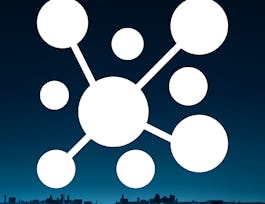The course probes the formation of social policy in the United States from its very first cultural and religious roots. Starting with the transition from hunter-gatherer groups to agrarian villages, the course will examine the passage of the Poor Laws that shaped social policy through the colonial period until the beginnings of the 20th century, when the challenge of making the industrial city livable gave rise to the development of the welfare state. As part of this transformation, the provider of social welfare shifted from the local community to the state to the federal government. The course ends with an exploration of the debate regarding the role of government in the late 20th century: should it foster entitlements or self-sufficiency? This course addresses issues of power, oppression, and white supremacy.


US Social Services: Where did they come from?
This course is part of Social Policy for Social Services & Health Practitioners Specialization
Taught in English
Some content may not be translated

Instructor: John Robertson
3,024 already enrolled
Included with 
Course
(54 reviews)
Recommended experience
What you'll learn
Differentiate the roots of public aid including the “deserving poor” and the “undeserving poor”
Explain technological transformation has impacted on work, incomes & families to understand the needs of those seeking services and to reform system
identify the role of privilege and White Supremacy in the social welfare systems to transform the system to a more inclusive structure
Honors: Summarize and critique readings to professionally interpret them. Develop a research plan for a professional policy analysis.
Skills you'll gain
- - Formulate practice strategies to overcome the historic biases in social welfare programs
- - Distinguish the values inherent in each social policy initiative
- - Critique components of a social policy based on their effectiveness at meeting the goals stated in the initiative
- - Differentiate alternative approaches to social policy problems
- - Develop social welfare policy analysis and reform proposals
Details to know

Add to your LinkedIn profile
4 quizzes
Course
(54 reviews)
Recommended experience
See how employees at top companies are mastering in-demand skills

Build your subject-matter expertise
- Learn new concepts from industry experts
- Gain a foundational understanding of a subject or tool
- Develop job-relevant skills with hands-on projects
- Earn a shareable career certificate


Earn a career certificate
Add this credential to your LinkedIn profile, resume, or CV
Share it on social media and in your performance review

There are 4 modules in this course
In this module, you'll learn about the roots of social policy. Learners will hear about the Poor Laws and how the poor law shaped American social policy as well as the history of early activists and influencers.
What's included
14 videos1 reading1 quiz2 peer reviews1 discussion prompt
This module describes the development of social policy in the modern industrial city: public health, worker safety, mother's pensions and roots of the movement for racial equality.
What's included
12 videos1 reading1 quiz1 peer review
This module explores the shift to a federal role in social policy and the development of welfare state institutions, including public works and employment, pensions, public housing and supports for families
What's included
9 videos1 reading1 quiz1 peer review1 discussion prompt
As the US Welfare State developed, health care and social services expanded. Tensions developed over the role of safety net programs for the poor and the social policy debate centered on providing entitlements versus developing self-sufficiency.
What's included
16 videos1 reading1 quiz2 peer reviews
Instructor

Offered by
Recommended if you're interested in Governance and Society

Columbia University

Columbia University

Columbia University

Universiteit Leiden
Why people choose Coursera for their career




Learner reviews
Showing 3 of 54
54 reviews
- 5 stars
90.74%
- 4 stars
9.25%
- 3 stars
0%
- 2 stars
0%
- 1 star
0%
Reviewed on Dec 6, 2019

Open new doors with Coursera Plus
Unlimited access to 7,000+ world-class courses, hands-on projects, and job-ready certificate programs - all included in your subscription
Advance your career with an online degree
Earn a degree from world-class universities - 100% online
Join over 3,400 global companies that choose Coursera for Business
Upskill your employees to excel in the digital economy
Frequently asked questions
Access to lectures and assignments depends on your type of enrollment. If you take a course in audit mode, you will be able to see most course materials for free. To access graded assignments and to earn a Certificate, you will need to purchase the Certificate experience, during or after your audit. If you don't see the audit option:
The course may not offer an audit option. You can try a Free Trial instead, or apply for Financial Aid.
The course may offer 'Full Course, No Certificate' instead. This option lets you see all course materials, submit required assessments, and get a final grade. This also means that you will not be able to purchase a Certificate experience.
When you enroll in the course, you get access to all of the courses in the Specialization, and you earn a certificate when you complete the work. Your electronic Certificate will be added to your Accomplishments page - from there, you can print your Certificate or add it to your LinkedIn profile. If you only want to read and view the course content, you can audit the course for free.
If you subscribed, you get a 7-day free trial during which you can cancel at no penalty. After that, we don’t give refunds, but you can cancel your subscription at any time. See our full refund policy.

